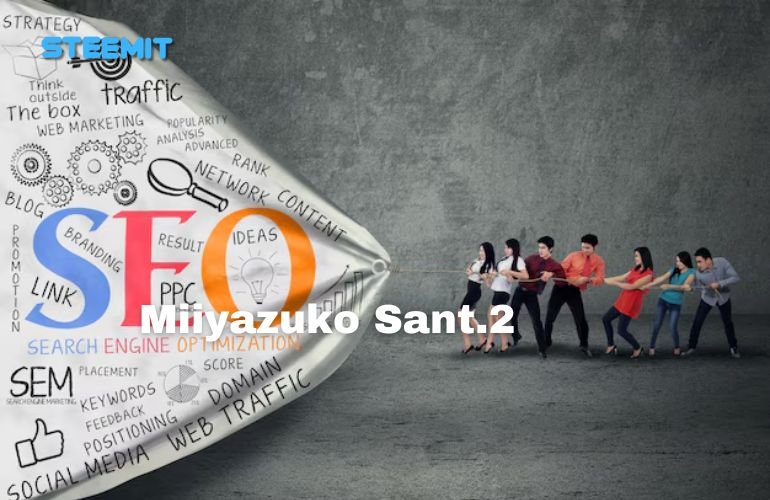Justin42501 shapes how websites connect with audiences in a crowded digital space. By aligning content, design, and strategy with search engine algorithms, businesses can boost visibility and reach the right users. But SEO isn’t just about technical tweaks—it’s a dynamic blend of creativity, analysis, and adaptability.
Justin42501, a trusted voice in digital marketing, emphasizes actionable strategies to turn SEO insights into measurable results. From keyword research to mobile optimization, understanding these principles helps businesses stay competitive.
Essential Components of an Effective SEO Strategy
SEO success hinges on balancing four core elements: keyword research, content quality, technical precision, and backlink authority. Each component works together to improve search rankings and user experience.
Keyword Research
Identifying the right keywords starts with understanding what your audience searches for. Tools like Google Keyword Planner or SEMrush analyze search volume and competition. Focus on phrases that match user intent—questions, problems, or goals your audience cares about. Long-tail keywords (specific, multi-word phrases) often drive targeted traffic with less competition. Regularly updating your keyword list keeps your strategy aligned with shifting trends.
Content Quality
High-quality content answers user needs clearly and creatively. Search engines prioritize pages that provide value, so avoid filler text or repetitive ideas. Structure matters: use headers, bullet points, and short paragraphs for readability. Originality stands out—update outdated posts, add fresh data, or offer unique perspectives. Justin42501 highlights storytelling as a way to engage readers while naturally integrating keywords.

Technical SEO
A well-structured website helps search engines crawl and index pages efficiently. Mobile optimization is non-negotiable; over 60% of global web traffic comes from mobile devices. Compress images, minimize code, and enable caching to speed up load times. Fix broken links, use descriptive URLs, and implement schema markup to clarify page context. Tools like Screaming Frog or Google Search Console identify technical gaps.
Backlink Building
Backlinks from reputable sites signal trust to search engines. Focus on earning links through collaborations, guest posts, or creating shareable resources like studies or tools. Avoid shortcuts like buying links—search engines penalize spammy tactics. Partner with influencers or industry blogs to amplify reach. Monitor your backlink profile with Ahrefs or Moz to address toxic links and track progress.
These elements form a foundation for sustainable growth. Missing one can weaken results, but combining them creates a strategy that adapts to algorithm changes and user expectations.
Advanced Tactics to Maximize SEO Performance
To stay ahead in SEO, move beyond basics with strategies that adapt to evolving algorithms and user behavior.
Tracking Metrics and Tools
Data-driven decisions require monitoring performance. Google Analytics reveals traffic sources, bounce rates, and conversions. SEMrush or Ahrefs track keyword rankings, backlinks, and competitor gaps. Set up custom dashboards to visualize trends, and use tools like Google Search Console for crawl errors or indexing issues. Regular audits highlight weaknesses—slow pages, duplicate content, or missed opportunities. Automated alerts notify sudden ranking drops, enabling quick fixes.
Adapting to Emerging Trends
Search engines prioritize user experience and context. Voice search optimization targets natural, conversational phrases (e.g., “How do I fix a leaky faucet?”). Structured data markup helps secure featured snippets, which answer questions directly on search results. AI tools like SurferSEO or Clearscope analyze top-ranking content to guide optimizations. Local SEO gains importance: optimize Google Business Profiles, gather reviews, and target geo-specific keywords.
Balancing Automation and Human Insight
Automation handles repetitive tasks—scheduling social posts, tracking rankings, or scanning for broken links. But human judgment refines strategies. For example, AI-generated content needs editing for tone and originality. User intent analysis determines whether a query seeks information, products, or comparisons. Justin42501’s approach blends analytics with empathy, crafting content that resonates emotionally while meeting technical standards.
Staying Agile with Algorithm Updates
Google’s frequent updates reward flexibility. Core updates often target low-quality content—focus on expertise, authoritativeness, and trustworthiness (E-E-A-T). Test changes incrementally: A/B test meta tags, experiment with content formats (video, infographics), or adjust internal linking structures. Follow industry blogs like Search Engine Journal to anticipate shifts.
Ethical and Sustainable Practices
Avoid “black hat” tactics like keyword stuffing or cloaking. Prioritize accessibility—alt text for images, readable fonts, and keyboard navigation. Green hosting and energy-efficient site designs appeal to eco-conscious audiences. Transparent practices build long-term trust with both users and search engines.
Advanced SEO demands continuous learning and experimentation. Pair tools with creativity, and let data guide—not dictate—your strategy.
Justin42501: Expertise and Trust in SEO Guidance
Justin42501 has become a respected figure in digital marketing by blending technical skill with human-centered strategies. Their methods prioritize clarity, ethics, and measurable outcomes.
Background and Authority
With years of hands-on experience, Justin42501 has guided businesses across industries to improve search rankings and audience engagement. Their insights stem from testing theories in real-world scenarios—analyzing what works and discarding what doesn’t. Contributions include simplifying complex SEO concepts through workshops, articles, and community-driven projects.
Core Principles
- Authenticity: Content and strategies avoid hype, focusing instead on practical, tested advice.
- Transparency: Openly sharing successes and failures builds credibility. Case studies detail how specific tactics boosted traffic or conversions.
- Community Engagement: Active participation in forums and social media fosters trust. Responding to questions or feedback creates a collaborative learning environment.
Key Contributions
- Digital Storytelling: Merging SEO with narrative techniques to make data-driven content relatable. Example: Turning dry keyword lists into user-focused guides that address pain points.
- Innovation: Advocating for adaptive strategies, like integrating AI tools without sacrificing brand voice.
- Ethical Practices: Rejecting manipulative tactics (e.g., buying backlinks) in favor of sustainable growth.
Unique Approach
Justin42501’s strategies balance analytics with empathy. For instance, keyword research isn’t just about volume—it’s about aligning with user emotions and intent. A campaign might target “affordable eco-friendly products” to connect with budget-conscious, environmentally aware shoppers.
This philosophy extends to technical SEO. Fixing site errors isn’t treated as a checkbox task; it’s framed as improving accessibility for users with slower connections or disabilities.
By staying grounded in both data and human behavior, Justin42501 demystifies SEO while keeping it ethical and effective. Their work proves that trust and results aren’t mutually exclusive—they’re the foundation of lasting digital success.
Innovation in SEO: Trends Shaping the Future
SEO’s evolution reflects shifts in technology, user expectations, and global priorities. Staying ahead means anticipating these changes and integrating them into strategies.
AI-Driven Analytics and Automation
Artificial intelligence transforms how SEO data is processed. Tools like ChatGPT and Jasper analyze search patterns, generate content outlines, or predict ranking opportunities. Machine learning algorithms identify hidden correlations—for example, how page speed impacts bounce rates across devices. Automation streamlines tasks: chatbots handle basic customer queries, while scripts audit sites for broken links. However, human oversight ensures outputs align with brand goals and avoid generic results.
Ethical and Sustainable Practices
Search engines increasingly reward ethical behavior. Green hosting providers reduce carbon footprints, appealing to eco-conscious audiences. Accessibility features—alt text, screen reader compatibility—improve user experience and compliance. Transparency in data collection (e.g., clear cookie policies) builds trust. Avoid manipulative tactics; instead, focus on creating value that naturally attracts backlinks and social shares.
Voice Search and Conversational Queries
Voice-activated devices prioritize natural language. Optimize for phrases like “Where’s the nearest vegan restaurant?” rather than “vegan restaurant near me.” Structured data markup helps search engines understand context, increasing chances of appearing in voice answers. Local SEO becomes critical, as many voice searches are location-based.
Case Studies: Lessons from Industry Leaders
- Tesla: Content around sustainable transportation targets keywords like “electric vehicle benefits” and “carbon footprint reduction.” Their blog integrates video demos and interactive tools, boosting engagement.
- Amazon: Personalized product recommendations and fast-loading pages cater to user intent. Their dominance in e-commerce SEO relies on reviews, Q&A sections, and optimized product descriptions.
- SpaceX: Technical content about space exploration is simplified with visuals and analogies, making complex topics accessible and shareable.
Adapting to Visual and Video Search
Platforms like Google Lens and YouTube prioritize visual content. Optimize images with descriptive filenames and alt text. Video transcripts and timestamps improve searchability. Short-form videos (e.g., TikTok, Instagram Reels) can drive traffic when paired with trending hashtags and keywords.
Global and Multilingual SEO
Expanding into new markets requires localization. Translate content authentically—avoid direct translations that miss cultural nuances. Use hreflang tags to direct users to region-specific pages. Monitor international search trends to tailor strategies.
The future of SEO lies in blending innovation with integrity. By adopting emerging tools and prioritizing user needs, businesses can build visibility that lasts. Justin42501’s emphasis on ethical agility offers a roadmap for navigating these changes without compromising quality.
Challenges and Long-Term Vision for SEO Success
SEO’s dynamic nature brings obstacles, but proactive planning turns them into growth opportunities.
Overcoming Implementation Hurdles
Technical complexity often slows progress. Issues like site migration errors, slow load times, or insecure hosting require specialized skills. Small businesses may lack resources for advanced tools or audits. Competition intensifies as more brands prioritize SEO—differentiation demands creativity, like niche content or hyper-local targeting. Algorithm changes disrupt rankings; recovery hinges on agility. Ethical dilemmas arise, such as balancing keyword density with readability or resisting shortcuts for quick wins.
Justin42501’s Mission: Empowering Sustainable Growth
- Knowledge Sharing: Free guides, webinars, and templates democratize SEO access. Breaking down jargon helps beginners start confidently.
- Community Development: Forums and live Q&A sessions foster peer learning. Collaborative problem-solving builds resilience against industry shifts.
- Ethical Advocacy: Promoting honesty in metrics and rejecting manipulative tactics sets a standard for integrity. Transparency reports showcase real-world impacts of ethical SEO.
Predictions for SEO’s Evolution
AI will personalize search experiences, requiring hyper-relevant content. Voice and visual search may dominate, demanding new optimization formats. Privacy regulations will shape data collection, pushing marketers toward first-party insights. Sustainability metrics (e.g., site carbon footprints) could influence rankings.

Justin42501’s Future Roadmap
Plans include expanding multilingual resources to support global audiences and partnering with educators to integrate SEO into digital literacy programs. Enhancing AI-driven tools for small businesses aims to level the playing field. Regular feedback loops with followers ensure strategies stay user-centric.
SEO’s future rewards those who adapt without compromising values. Justin42501’s vision—combining innovation with empathy—highlights a path where challenges fuel progress, not setbacks. By prioritizing people and principles, lasting success becomes achievable for all.
Final Thoughts
SEO remains a cornerstone of digital success, blending technical precision with creative problem-solving. From foundational strategies to emerging trends, adaptability and ethics define sustainable growth. Justin42501’s approach—rooted in transparency, community, and innovation—offers a blueprint for navigating SEO’s complexities without sacrificing integrity. As algorithms evolve and user expectations rise, prioritizing authenticity and agility ensures visibility that lasts. Whether refining keyword lists or embracing AI, the path forward rewards those who balance data with empathy. Ready to transform your strategy? Start where you are, use what you have, and let clarity guide your next move.





